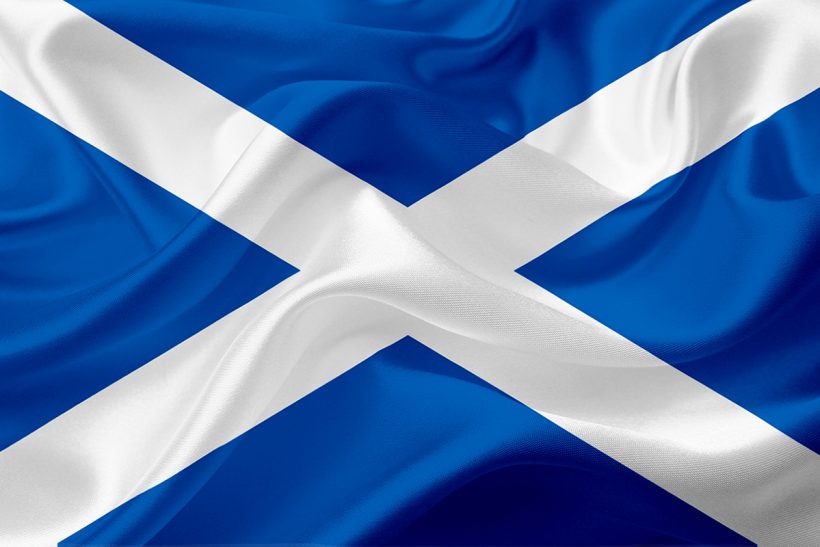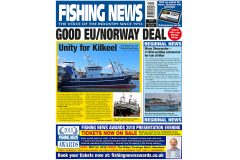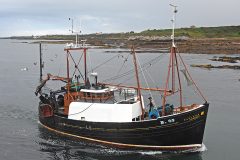Scotland and the UK’s biggest FPO has come out strongly against Marine Scotland’s proposals to force Scottish-registered vessels to land 55% of their catches in Scotland, reports Tim Oliver.
In its reply to Marine Scotland’s consultation, the Scottish Fishermen’s Organisation (SFO) says it supports the Scottish government’s aim of increasing the volume of pelagic fish landings into Scotland. But it strongly opposes new regulations to achieve this, and ‘firmly believes’ that a combination of non-regulatory initiatives is a better approach.
The SFO makes its case in a detailed 20-page reply to the consultation, backed up by a 30-page report from consultants Poseidon Aquatic Resources. This was commissioned in conjunction with the Shetland PO to undertake an independent Economic Impact Assessment (EIA) of the economic links proposals. It says Scottish pelagic processors declined an invitation to form part of that project’s steering group.
It says its own detailed marketing proposals (see box summary below) ‘will better achieve the objective of increased pelagic landings into Scotland in a non-anti-competitive manner and without the unintended consequences that will almost certainly result from the Scottish government proposals’.
It has been taking legal advice on the issue since Marine Scotland issued their first letter on the subject of a ‘Scottish Landings Target’ in August, 2016.
The PO says the proposal would not be compatible with the current concordat between UK fisheries administrations on UK vessel management, and that Marine Scotland had not consulted DEFRA.
It does not agree that a ‘landings into Scotland’ requirement would be a stronger economic link than the existing crewing and vessels’ operating expenditure link options.
It highlights that the Scottish pelagic catching sector is 100% owned by Scottish companies and crewed almost entirely by Scottish domiciled individuals, which both make substantial contributions to the NE and national economy.
It also calls on the Scottish government to clarify what its alternative option to the 55% landing requirement is. Unless this is done, the landing requirement becomes mandatory, which raises legal issues.
The SFO said it had received legal advice that earlier proposals for voluntary increases in pelagic landings made by Scottish Cabinet Secretary Fergus Ewing could be illegal under EEA competition laws, because they would ‘cause a partitioning of the EEA market for pelagic species’. Penalties for this can be severe and as the SFO had received no clarification from Marine Scotland on the legal position, it could not voluntarily increase landings into Scotland.
The SFO spells out the financial cost to Scottish pelagic vessels of the 55% landings proposals based on the Poseidon impact analysis, which would be substantial but vary according to the different operations of different vessels.
Summing up, the SFO says the consultation document is misleading, has inaccurate data, insufficient analysis of the impacts and no detail on the legal justification when SFO had said the measures proposed would breach EU law.
It regrets the Scottish government’s approach to the pelagic processing sector’s problems and calls for cooperation by all involved ‘to develop strategies that would enable Scottish industry to maximise the value of Scottish pelagic resources at each point of the value chain, and compete with the Norwegians and others in terms of quality, rather than effectively sleepwalking into a scenario that permanently consigns the Scottish pelagic industry to ‘the second division’ for the long-term’.
The full SFO response can be seen here.
Demersal boats also hit
While the SFO’s response to the consultation is heavily weighted to pelagic sector issues, the PO also rejects the proposals for demersal vessels. “The SFO does not share the Scottish government’s view that the small number of demersal vessels who may be affected will ‘readily be able’ to find alternative landing opportunities in Scotland,” it tells Marine Scotland. “This will cause displacement and either impact on catch quality due to increased steaming times, or put greater pressure on stocks closer to home.”
The proposals will impact unfairly on Scottish demersal vessels that split landings between Scotland, Northern Ireland and England. “It would appear these vessels are effectively being treated as collateral damage in the pursuit of increased pelagic landings into Scotland.”
How to help pelagic marketing
The SFO highlights three possible non-regulatory ways to increase pelagic landings into Scotland that have been discussed:
● Targeted marketing support for pelagic processors to enable growth in high-value export markets (particularly Japan and Korea)
● Support investment in plant modernisation to ensure the quality required of high- value markets
● Support to Scottish processors in bidding for fish on the Norwegian auction system to enable fair access to the fish that is available.
The SFO says there needs to be ‘a comprehensive review and rethink of how Seafood Scotland, POs, government and the processing sector currently approach the marketing of Scottish pelagic species in the Far East’ – for mackerel, in particular.
It says it is willing to dedicate funding to improve marketing efforts for pelagic species, if other affected POs are also willing to do so.
Read more news from Fishing News here.






